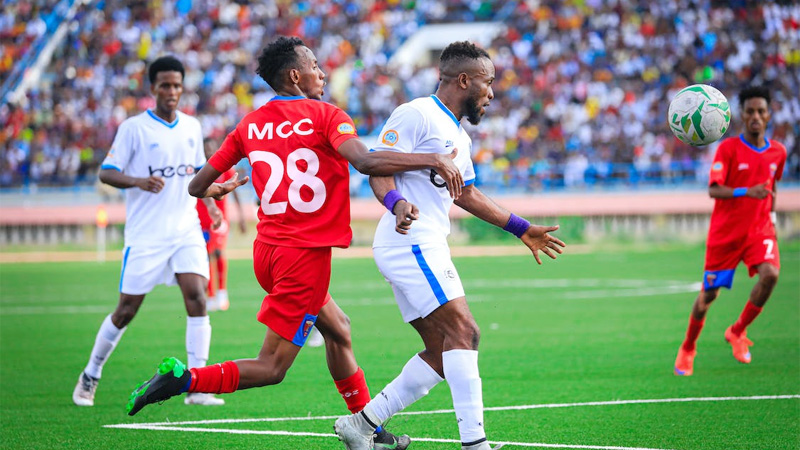Soccer, which means football in many parts of the world, is a sport that captivates the hearts of millions and has a universal appeal. Whether you’re a beginner taking your first steps on the pitch or an experienced player looking to refine your skills, there is always something new to learn and improve upon in the beautiful game.
To help you on your journey to becoming a better soccer player, we’ve compiled a comprehensive list of soccer tips that cover various aspects of the sport.
From technical skills to mental preparation, these tips are designed to guide players of all levels and ages to enhance their performance and enjoyment of the game. So, lace up your boots and get ready to unlock your true potential on the field!
List Of 24 Essential Soccer Tips
Discover valuable insights to elevate your soccer game with our curated list of 25 essential soccer tips, covering skills, tactics, fitness, and mental preparation. Kick-start your journey to success
1. Master Your Passing Technique
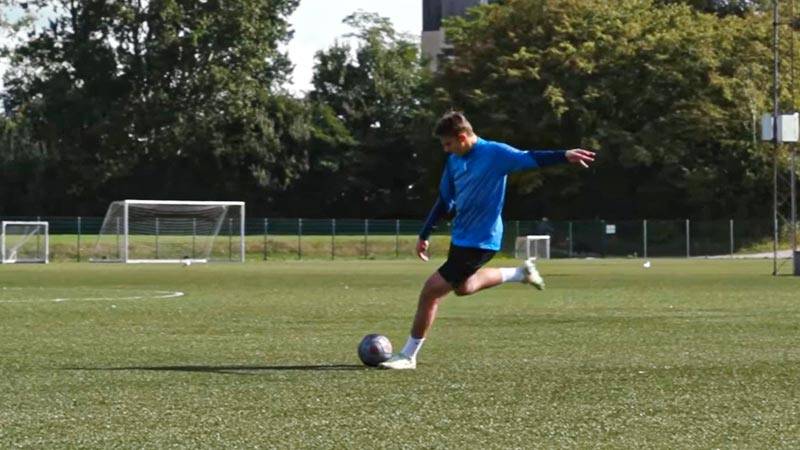
Passing is a fundamental skill in soccer, and mastering it is essential for beginners. Focus on improving both short and long-range passing. Practice different passing techniques such as the inside-of-the-foot pass, the outside-of-the-foot pass, and the lofted pass.
Pay attention to your body positioning and the way you strike the ball to ensure accuracy and speed in your passes. Remember, passing is not just about kicking the ball but also about understanding where your teammates are on the field and delivering the ball to them with precision.
2. Develop Strong Ball Control Skills
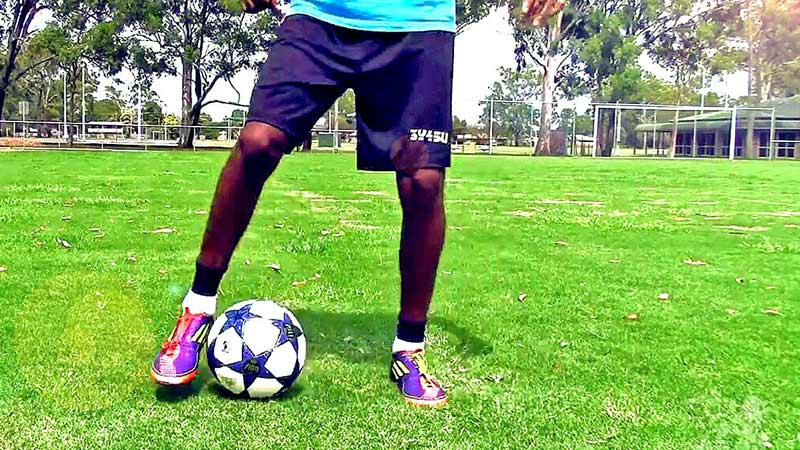
Ball control is the foundation of every soccer player’s abilities. Beginners should practice controlling the ball with both feet. Use various surfaces of your foot – instep, outstep, sole, and laces – to receive and control the ball effectively.
Work on trapping the ball from the air, from the ground, and while it’s moving. Improve your touch and feel for the ball to keep it close to you, giving you more time to make decisions and evade opponents. Good ball control allows you to maintain possession and execute other skills more efficiently.
3. Improve Your Shooting Accuracy
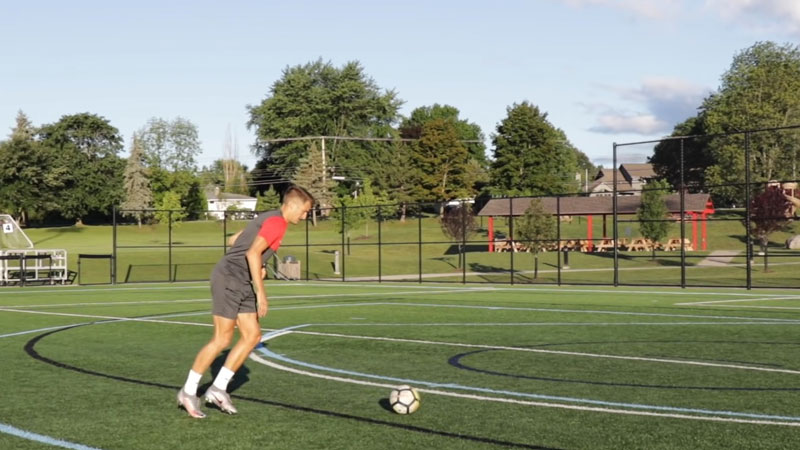
Shooting accurately is one of the most exciting aspects of soccer. Beginners should start by practicing their shooting technique from different angles and distances. Focus on striking the ball with the laces of your foot for power and accuracy.
Work on your balance and follow through to generate a consistent and powerful shot. Aim for various targets on the goal to improve your accuracy. As you progress, try different types of shots, such as volleys, chips, and bending shots, to become a more versatile and dangerous striker.
4. Enhance Your Dribbling Abilities
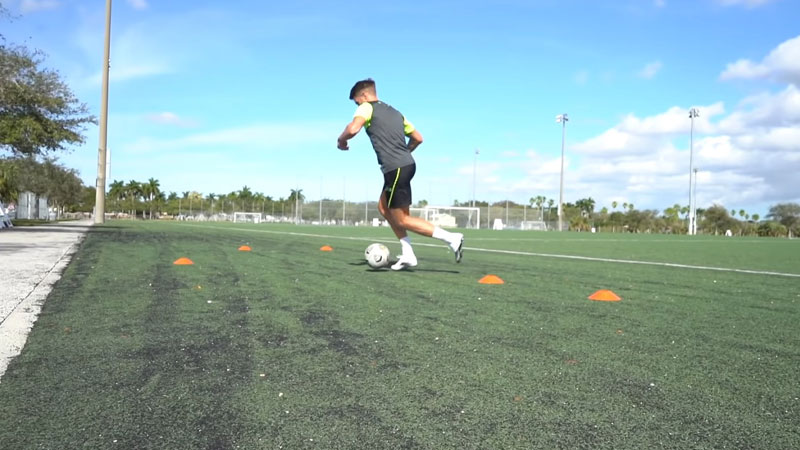
Dribbling is a skill that allows players to maneuver the ball through tight spaces and past opponents. For beginners, it’s essential to develop close ball control while running at different speeds. Use both feet to dribble and practice changing direction quickly.
Keep the ball close to your feet and use subtle touches to keep defenders guessing. Work on your feints and body movements to create space and deceive opponents. Dribbling drills and exercises will help you gain confidence in taking on defenders and making successful attacking runs.
5. Work on Your First Touch
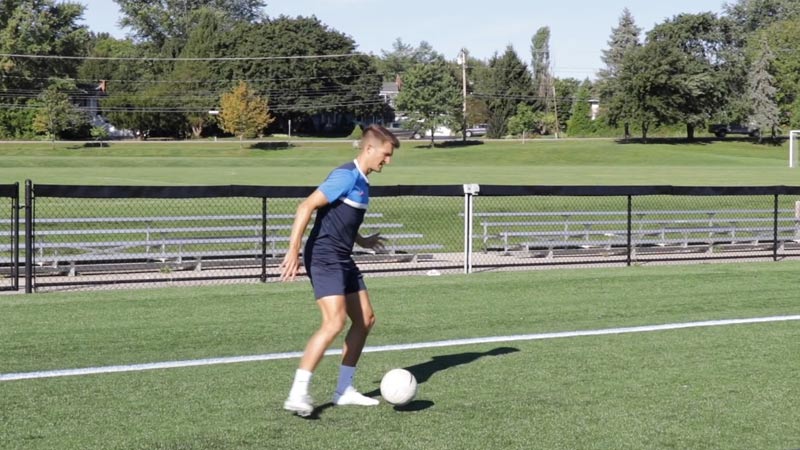
The first touch in soccer refers to how well you receive the ball when it comes to you. A good first touch sets you up for successful passes, shots, and dribbles.
For beginners, focus on cushioning the ball softly when receiving it to avoid losing possession or allowing opponents to close you down quickly. Practice receiving passes from various distances and angles, and try to direct the ball where you want it to go with your first touch.
Controlling the ball with your first touch gives you a significant advantage on the field, as you can immediately move into your next action without wasting time.
6. Understand Tactical Positioning
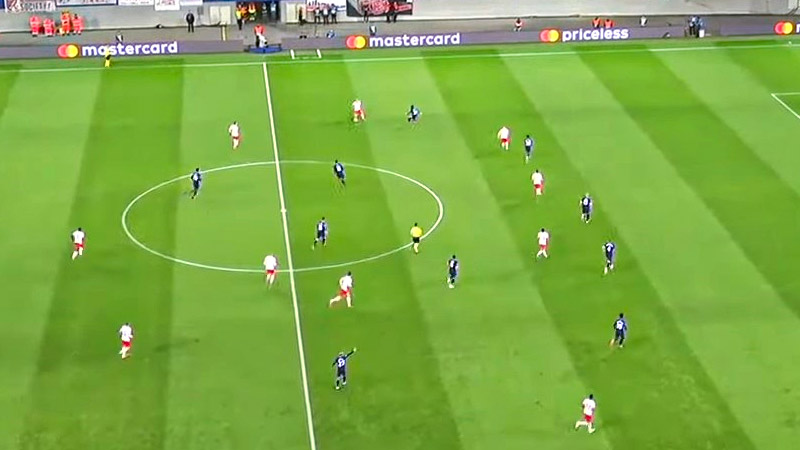
Tactical positioning in soccer refers to the ability to position oneself effectively on the field to gain a strategic advantage over opponents. For beginners, it’s essential to grasp the basics of different positions and their roles in the field.
For example, defenders should focus on maintaining a compact defensive line, while midfielders need to know when to support the attack and drop back to defend. Strikers must learn how to make intelligent runs to create goal-scoring opportunities.
To develop this skill, beginners should pay attention to their coaches’ instructions, study professional games, and participate in drills that emphasize positional awareness.
With practice and experience, players can make smarter decisions on the field and contribute more effectively to the team’s overall performance.
7. Improve Your Fitness and Endurance
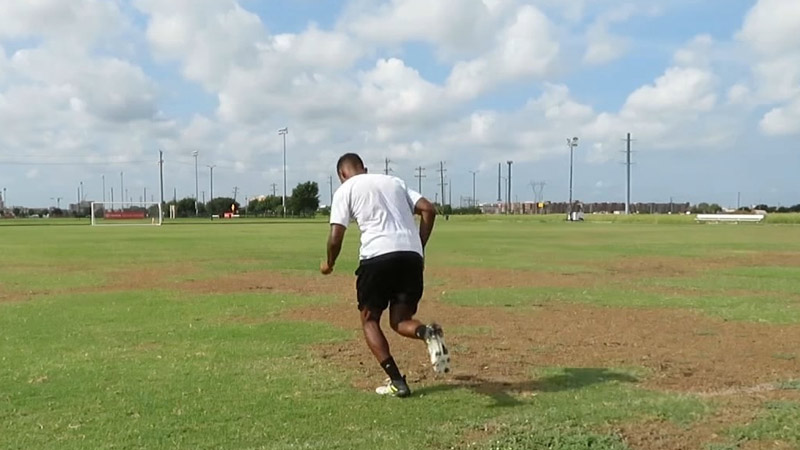
Soccer is a physically demanding sport that requires players to have good fitness levels and endurance. For beginners, building a strong fitness foundation is essential to keep up with the pace of the game, recover quickly, and perform at their best throughout the match.
A well-rounded training routine should include cardiovascular exercises like running and interval training to improve stamina. Additionally, strength training, focusing on the lower body, core, and upper body, helps players gain power, balance, and stability. Flexibility exercises are also vital to reduce the risk of injuries.
Consistency is key to improving fitness. Beginners should start gradually and progressively increasing the intensity of their workouts over time. Engaging in soccer-specific drills that mimic game situations will help condition the body to perform optimally during matches.
8. Practice Set Pieces Regularly
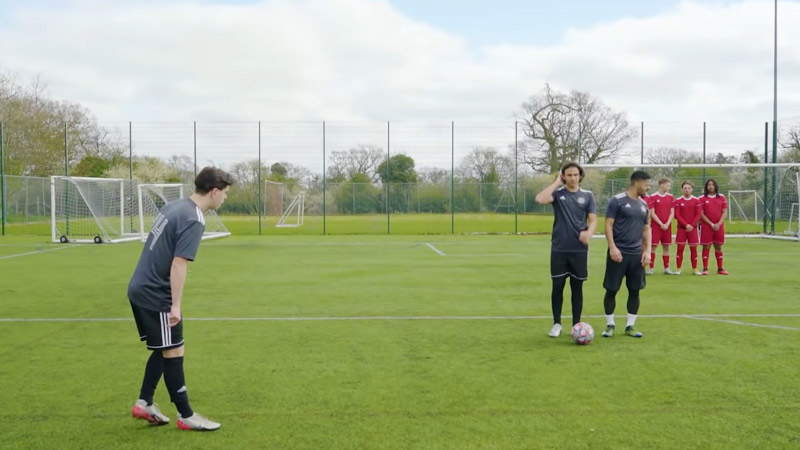
Set pieces are specific plays that occur during dead ball situations, such as free-kicks, corners, and throw-ins. Mastering set pieces is crucial for beginners because they can be game-changers and offer excellent scoring opportunities.
Players should practice set pieces both individually and as a team. For example, free-kick specialists can work on their technique and accuracy, while the rest of the team can focus on positioning and executing pre-planned routines.
Understanding roles and responsibilities during set pieces ensures that players know where to be and what to do when the opportunity arises during a match.
9. Communicate Effectively with Teammates
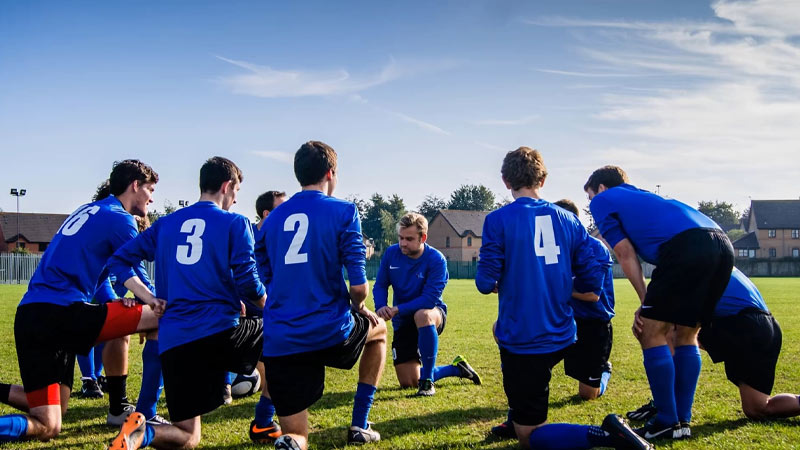
Communication is the backbone of a successful soccer team. Beginners must learn to communicate effectively on the field to convey intentions, share information, and coordinate their actions.
Verbal communication is essential, with players calling for passes, indicating their positions, or alerting teammates about incoming opponents. Additionally, non-verbal communication, such as hand signals and body language, helps in creating a better understanding among teammates.
A cohesive team with strong communication can respond quickly to changing situations and adapt their strategies accordingly. Beginners should be encouraged to speak up on the field and practice active listening to create a positive and supportive team environment.
10. Study Game Strategies and Opponents
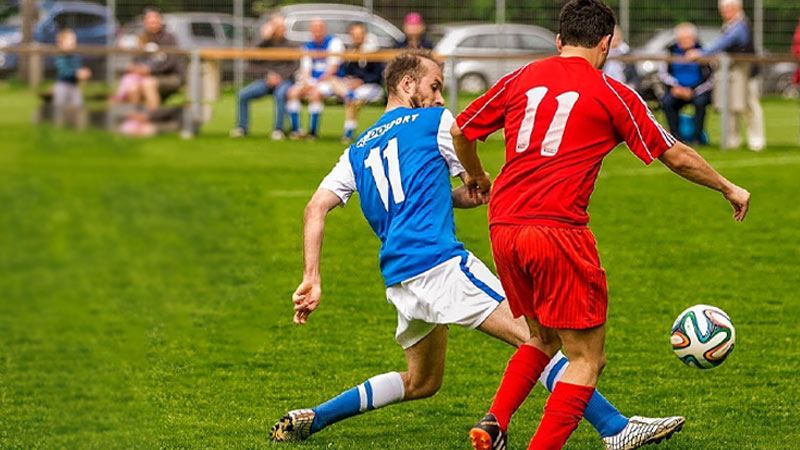
Understanding game strategies and opponents’ playstyles is an important aspect of soccer. By studying opponents, players can identify their strengths, weaknesses, and patterns of play. This knowledge allows teams to devise effective tactics and game plans to exploit weaknesses and neutralize threats.
Beginners can start by analyzing professional games, observing how different teams approach matches, and learning from experienced players. Coaches can also provide valuable insights into opponents’ tendencies and help players develop their analytical skills.
During matches, players should remain observant and adapt their strategies based on the unfolding events on the field. The ability to read the game and make informed decisions will elevate a player’s performance and contribute to the overall success of the team.
11. Maintain a Positive Attitude on the Field
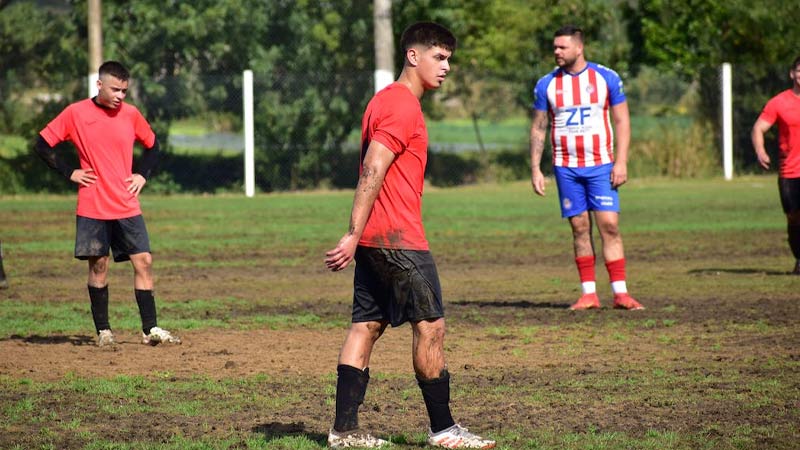
Having a positive attitude is crucial for soccer players, especially beginners. Soccer can be challenging, and setbacks are a natural part of the learning process. Maintaining a positive attitude helps you stay motivated and focused on improving your skills.
Instead of dwelling on mistakes or missed opportunities, use them as learning experiences to grow as a player. Encourage your teammates and work together as a cohesive unit, fostering a positive and supportive team environment. A positive attitude not only benefits your performance but also makes the game more enjoyable for everyone involved.
12. Enhance Your Heading Technique
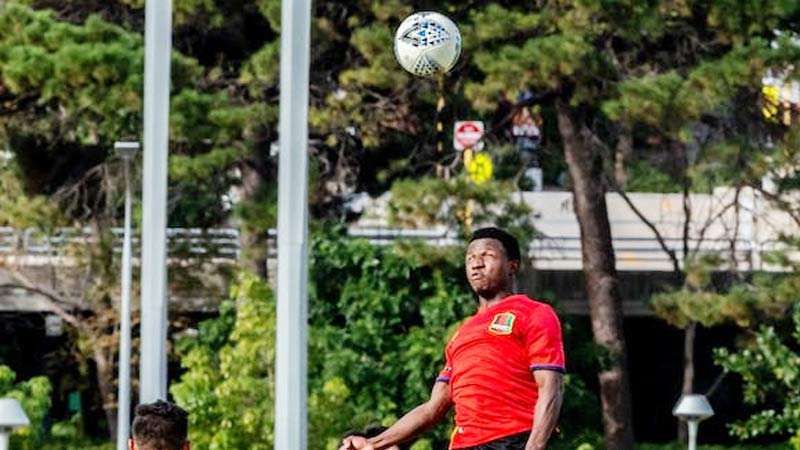
Heading the ball is an essential skill in soccer, but it requires proper technique and safety precautions. For beginners, it’s essential to start with low-intensity heading drills and gradually progress to more challenging exercises. Focus on positioning your body correctly, using your forehead to strike the ball, and keeping your eyes open to track the ball’s flight.
Additionally, learn to redirect the ball’s trajectory with different parts of your forehead for more accurate and controlled headers. Practice heading with a partner or against a rebounder to develop confidence and accuracy in this fundamental skill.
13. Focus on Quick Decision Making
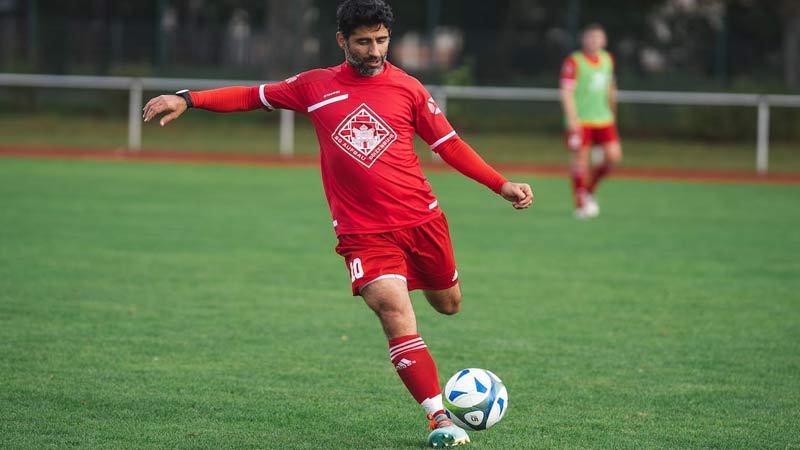
Soccer is a fast-paced game that demands quick thinking and decision-making. As a beginner, it’s crucial to improve your ability to process information on the field and make effective decisions under pressure. Practice scenarios where you have to decide whether to pass, dribble, shoot, or change direction in a split second.
Regular game time and small-sided matches help develop your decision-making skills, as they simulate real match situations where you need to react swiftly to varying game dynamics.
14. Train Both Feet Equally
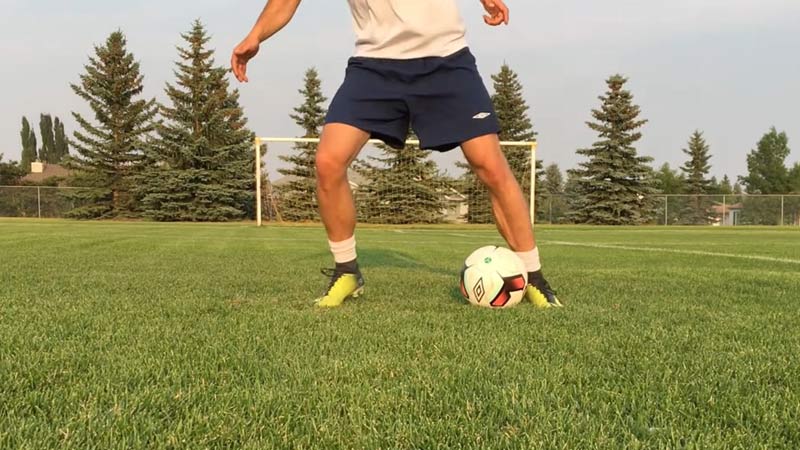
A common mistake among beginner soccer players is neglecting their weaker foot. To become a well-rounded player, it’s essential to train both feet equally. Developing proficiency with your non-dominant foot expands your passing, shooting, and dribbling options on the field, making you less predictable to opponents.
Start with simple drills that focus on basic ball control and gradually progress to more complex exercises. Dedicate time to working on your weaker foot during each practice session, and over time, you’ll notice significant improvement.
15. Develop Spatial Awareness
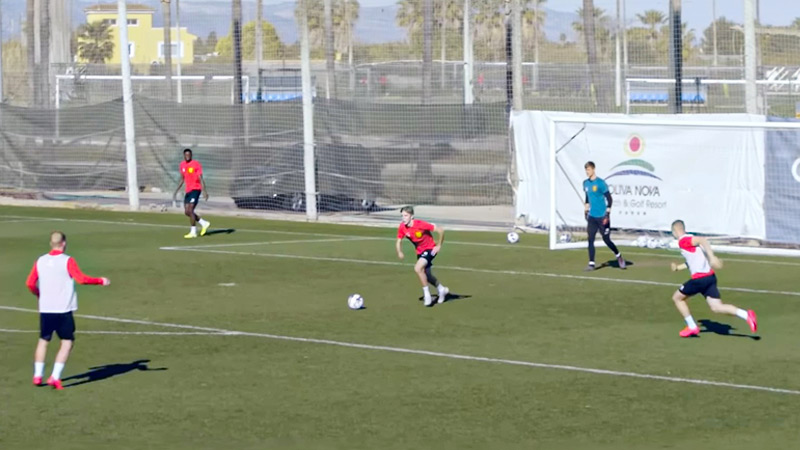
Spatial awareness in soccer refers to the ability to understand the positioning of players, the ball, and open spaces on the field. Being spatially aware allows you to make informed decisions about when to pass, move, or take a shot. To enhance this skill, continually scan the field while you’re on the ball and even when you don’t have possession.
Pay attention to the movement of teammates and opponents, and anticipate their actions. Regularly playing small-sided games can greatly improve your spatial awareness as they require constant adjustments to positioning and movement.
16. Learn Effective Defending Techniques
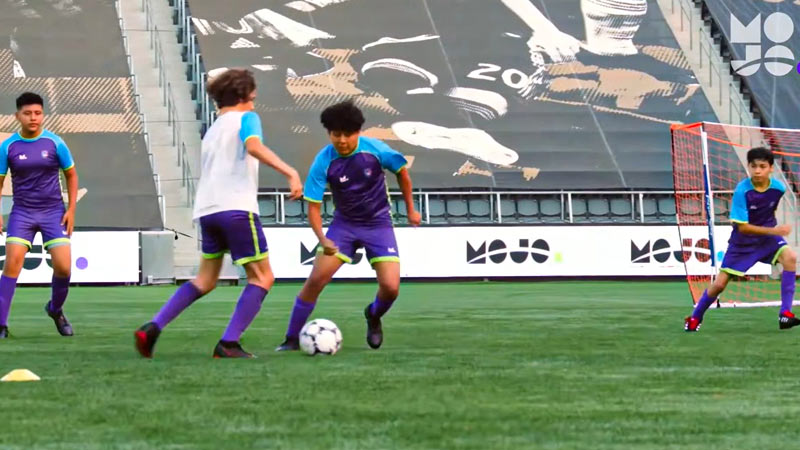
While scoring goals is exciting, knowing how to defend effectively is equally vital for a well-rounded player. Beginners should focus on learning the basics of defensive positioning, tackling, and marking opponents. Avoid diving into tackles recklessly and instead focus on jockeying and forcing the attacker into less dangerous areas.
Communication with teammates is crucial in defense, so practice effective communication to ensure everyone is on the same page. By honing your defensive skills, you become a more valuable asset to your team and contribute to a solid defensive unit.
17. Master One-on-One Situations
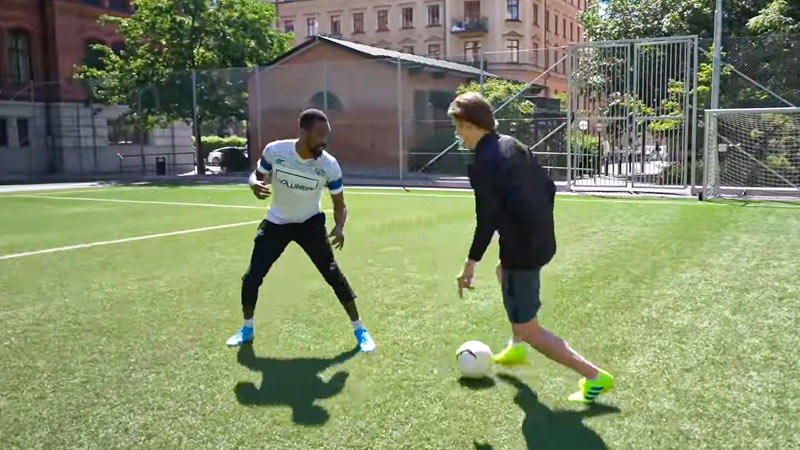
Soccer is often a game of one-on-one situations, both in attacking and defensive scenarios. For attackers, this means being able to take on defenders and create goal-scoring opportunities. For defenders, it’s about containing attackers and preventing them from advancing.
Practice one-on-one drills to improve your ability to dribble past opponents or defend effectively without resorting to fouling. This skill set is essential for breaking down stubborn defenses or shutting down skillful attackers. Mastering one-on-one situations adds versatility and confidence to your game.
18. Utilize the Offside Trap Wisely
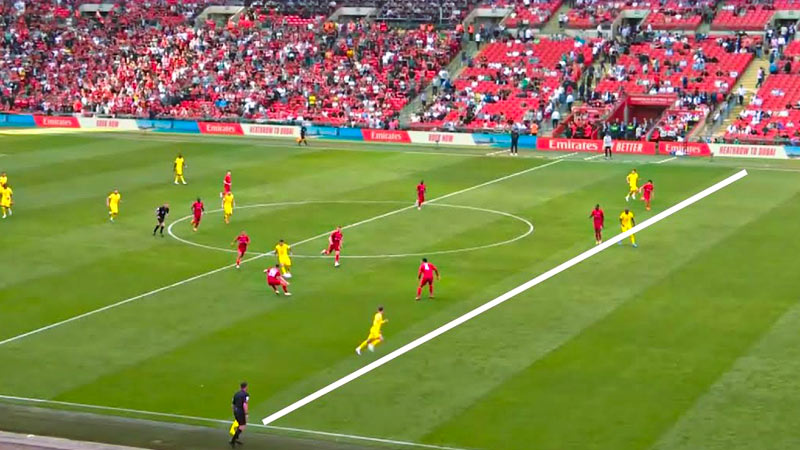
The offside trap is a defensive strategy employed by a team to catch attacking players in an offside position. For beginners, understanding the offside rule is crucial.
It involves the concept that an attacking player should not be closer to the opponent’s goal line than both the ball and the second-last defender when the ball is played to them. To utilize the offside trap wisely, defenders need to communicate effectively and time their movements correctly.
This tactic can disrupt the opposing team’s attacks and create opportunities for counter-attacks. However, it requires coordination and practice, so beginners should work on it during training sessions with their teammates and coaches.
19. Improve Your Goalkeeping Skills
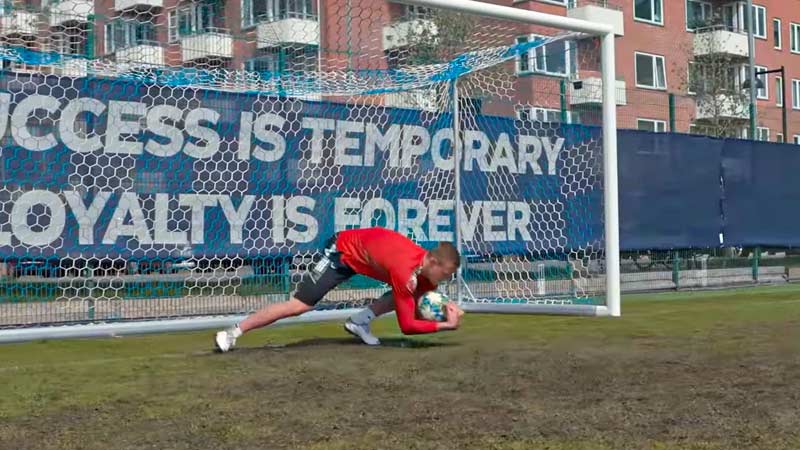
Goalkeeping is a specialized position in soccer, and beginners interested in becoming goalkeepers should focus on developing specific skills. These skills include diving, positioning, catching, shot-stopping, and distribution. Regular goalkeeper training is essential to improve reflexes, agility, and decision-making abilities.
Beginners can benefit from studying professional goalkeepers, observing their techniques, and learning from their gameplay. Working closely with a goalkeeper coach will also provide valuable guidance and feedback to improve their skills effectively.
20. Study and Emulate Soccer Legends
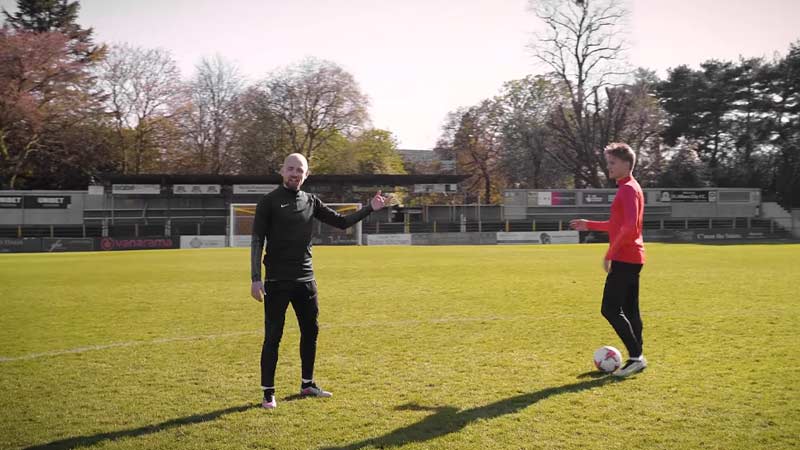
Learning from the greats of the game is an excellent way for beginners to gain insights into advanced techniques, tactics, and strategies. Watching matches featuring soccer legends can offer valuable lessons in positioning, passing, dribbling, and shooting.
Pay attention to how these players handle different game situations and analyze their decision-making process. Emulating their playing style in training can help beginners refine their own skills and improve their understanding of the game.
21. Stay Committed to Regular Training
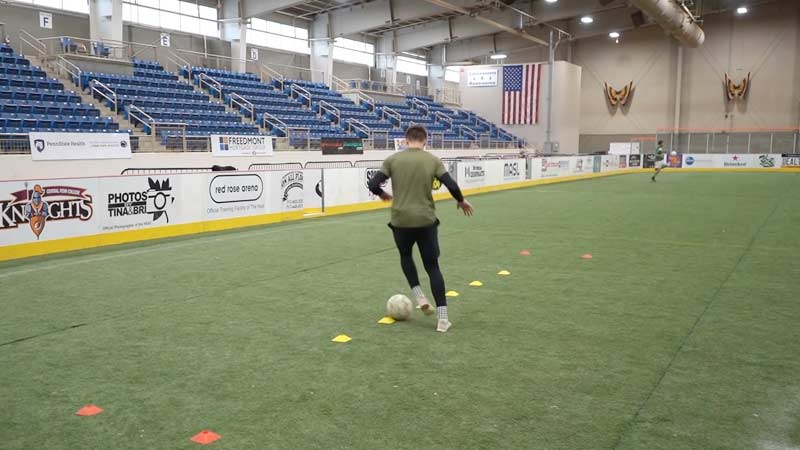
Consistent training is fundamental to progress in soccer. Beginners should attend practice sessions regularly to develop their technical abilities, tactical awareness, and physical fitness.
Practice allows players to build muscle memory, which is essential for performing skills instinctively during matches. Regular training also fosters teamwork, communication, and bonding with teammates, all of which are vital aspects of soccer.
22. Take Care of Your Body and Avoid Injuries

Soccer is a physically demanding sport, and taking care of one’s body is crucial for staying healthy and performing at the highest level. Beginners should focus on proper warm-up routines before matches and training sessions to prevent injuries.
Additionally, they should maintain a balanced diet, stay hydrated, and get sufficient rest to support their physical development. Injuries are common in soccer, and while some may be unavoidable, players can reduce the risk by adopting good training practices and seeking timely medical attention when needed.
23. Understand and Follow the Rules of the Game

A strong grasp of the rules is essential for all soccer players, including beginners. Knowing the rules ensures fair play, prevents unnecessary fouls or penalties, and contributes to a smooth and enjoyable game.
Beginners should familiarize themselves with the basics of the game, such as the offside rule, fouls, yellow and red cards, and the role of the referee. Understanding these rules will also enable players to make informed decisions during matches.
24. Play with Passion and Determination

Passion and determination are intangible but crucial qualities in soccer. Playing with heart and dedication can elevate a player’s performance and motivate the entire team.
Beginners should embrace the joy of playing the sport and approach each game with a positive mindset. A strong will to win, coupled with a love for the game, can inspire players to push their limits and continuously strive for improvement.
FAQs
What are some essential technical skills every soccer player should develop?
Mastering fundamental technical skills such as passing, dribbling, shooting, and ball control is crucial for every soccer player. These skills form the foundation of your gameplay and significantly impact your performance on the field.
How can I improve my soccer IQ and tactical awareness?
Studying the game and understanding different tactics, formations, and strategies employed by successful teams can help boost your soccer IQ. Watching professional matches, analyzing gameplays, and learning from experienced coaches will enhance your tactical awareness.
As a beginner, how can I enhance my physical fitness for soccer?
To improve your fitness for soccer, focus on building endurance, agility, speed, and strength. Incorporate regular cardio workouts, interval training, and strength exercises to enhance your physical capabilities and stay match-fit.
What mental aspects should I work on to become a better player?
Mental resilience, focus, and a positive mindset are vital in soccer. Building mental toughness through visualization, goal-setting, and staying composed under pressure can elevate your performance and decision-making on the field.
How can I continue developing my soccer skills outside of team training sessions?
Dedicate time to individual training, practicing specific skills, and honing your weaknesses. Engage in small-sided games with friends or join local pick-up games to gain valuable experience and reinforce your learning outside of team practices.
Bottom Line
Becoming a skilled soccer player requires dedication, perseverance, and a willingness to continuously improve. The journey to mastering the game may be challenging, but it is also incredibly rewarding.
By applying the soccer tips provided in this comprehensive list, you can refine your technical abilities, enhance your tactical awareness, and nurture the mental aspects of your game. Remember, soccer is not just a sport; it’s a passion that unites players and fans worldwide.
Embrace the joy of playing, and with consistent effort and a love for the game, you can unlock your full potential as a soccer player. So, step onto the pitch with confidence, chase your soccer dreams, and let the beautiful game lead you on an extraordinary adventure!
Have Fun and Enjoy the Game!

